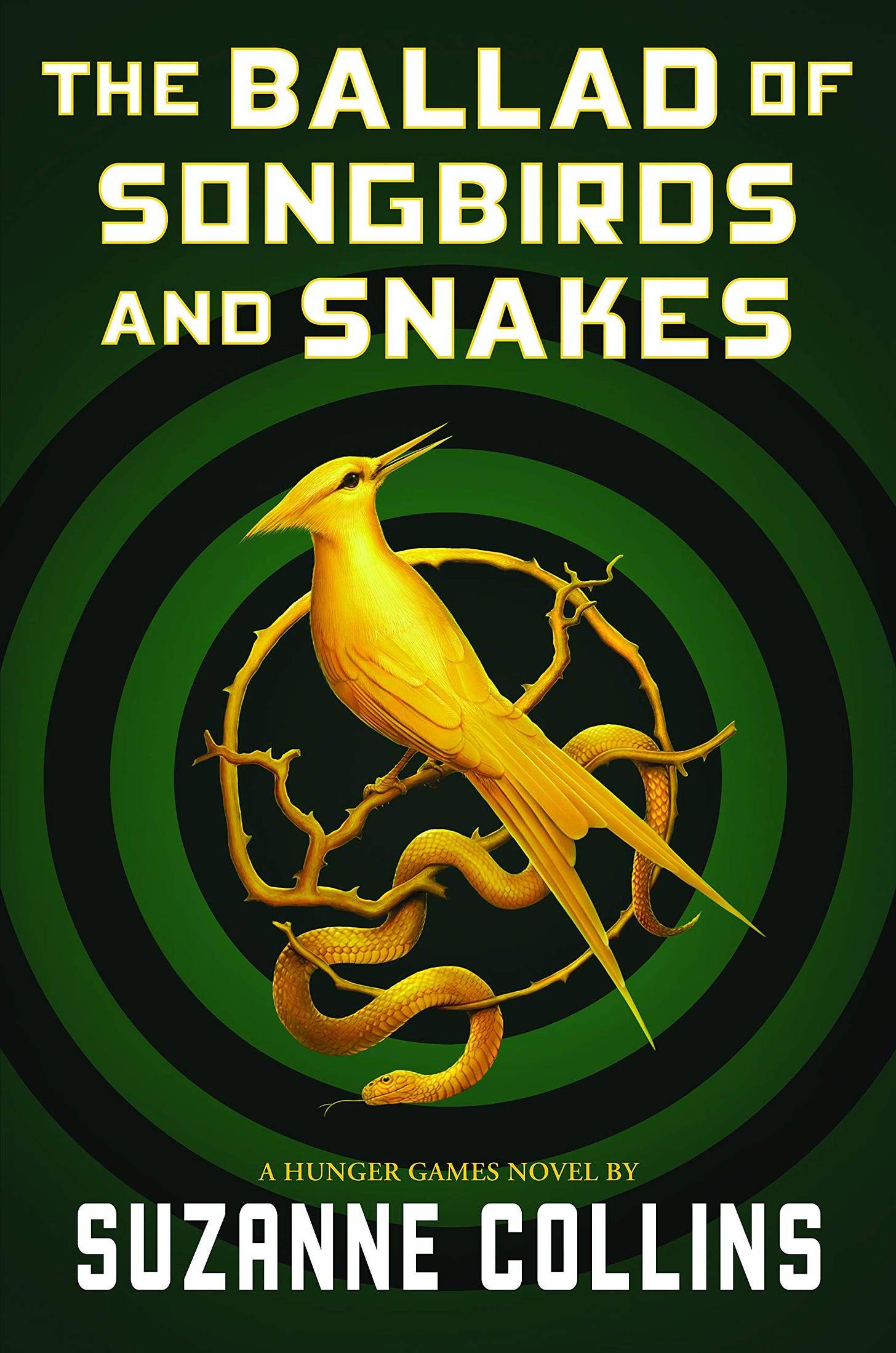Suzanne Collins takes us back to the world of The Hunger Games with this prequel, giving the reader a gripping backstory for the villain: Coriolanus Snow.
But where did he come from? What was his family like? And how did he end up using power with such deadly results?
The Story
Coriolanus Snow is 18 years old, and his family has fallen on hard times. His parents are dead. He and his cousin Tigris live with their geriatric grandmother, who doesn't understand the dire straits they're in. The family fortune is gone, and with new property taxes coming down the line, their poverty will soon be exposed to the other noble families of Panem.
His only hope lies in winning the 10th Hunger Games. He'll be a mentor, and if his tribute survives the ordeal, there will be a cash prize as well as a scholarship to the University, securing his future among the ruling class.
But if he fails, he will fall farther than he ever has before, into the dregs of society, the bottom rung of the working class, with no hope of ever clawing his way back to the top. And to make matters worse, there are officials within the government who are dead set on seeing him lose.
The Characters
Coriolanus Snow, who we already know ends up becoming President of Panem in the original trilogy, is the protagonist. Unlike the other books, this one is told in the third person, but it's always from Corio's perspective.
Sejanus Plinth is Corio's classmate, and his polar opposite in just about everything. He wasn't born to power, but rose to it from the lower ranks, as a direct result of the Snow family losing their fortune. He doesn't want the Capitol life, but rather to return to District 2, where he's from. And above all, he hates the Hunger Games. Due to his father's position, Sejanus is also given a mentor's berth, and his tribute is expected to win.
But perhaps the most surprising character introduction in the story was that of Lucy Gray Baird, the girl from District 12. The Reaping was rigged so that she'd be sent into the Games and killed; Coriolanus doesn't know why, but he's quickly charmed by her flamboyant personality and her seeming apathy toward her pending doom. She worms her way into his heart, and his infatuation with her drives the entire story forward from there.
The World
We're a few iterations away from the society we currently have in this world. At some point North America becomes Panem, the borders of which are never specified. The States are dissolved and the Capitol moves from the East Coast to somewhere in the Mountain West, likely Salt Lake City or Denver. Panem decays like the United States did, and the 13 Districts go to war with the Capitol, resulting in a nuclear holocaust, and the Capitol stays in power. The Hunger Games are designed as a constant punishment against the Districts for their rebellion.
While the original trilogy shows us Games 74 through 76, this prequel gives us an insight into just how crude and analog the Games were in the beginning. The Capitol wasn't completely sure how to use them, and wanted to make sure they were effective in quelling rebellion. We see just how young this new version of Panem is, and how Coriolanus started to influence it all from a very young age.
The Politics
Among the many virtues of this book is that it doesn't concern itself with Current Year (TM) nonsense. It's asking bigger questions and tackling bigger topics about the role of government, the use of force, and what real fascism actually looks like. These things have plagued humanity since we became self-aware, and the lessons from it therefore become timeless.
Content Warning
There is hardly any profanity that would bump the language above a PG rating, and no sensuality beyond some chaste kisses. There are a few tap-dancing references to prostitution among the desperate classes but it doesn't factor into the story much. The violence is present, given the subject matter, but Collins has always handled that element without reveling in it.
Who is it for?
While billed as Young Adult, the quality of writing and the depth of the story takes it outside of that audience and makes it accessible to adults as well. I started reading this series in my early 20s and I'm still reading it in my late 30s.
Why read it?
Because this is a master class on how to write a villain's backstory. In the past decade we've seen an abundance of origin tales where the bad guy was made to be sympathetic, a victim, or misunderstood. Frequently these stories end up justifying the villain's actions, which then casts the hero in an antagonist's role, muddying the waters between heroism and villainy.
Collins doesn't take that route with Ballad. While you watch Coriolanus start out as privileged and bitter, you see him go on a journey away from those things, and ultimately end up with a choice between love and power. Given that he's the future villain of Panem, you know he chooses power, and thus it becomes a cautionary tale about what we value, and what it costs us.
Most times when you read a literary tragedy, it's just verbose dog crap that public schools forced you to read. This was the first time I read one I'd actually consider beautiful, and would want to read multiple times.





I had no interest in reading this prequel, but this review changed my mind and it is exactly right about this being a "master class on how to write a villain's backstory." I am glad to have read it.